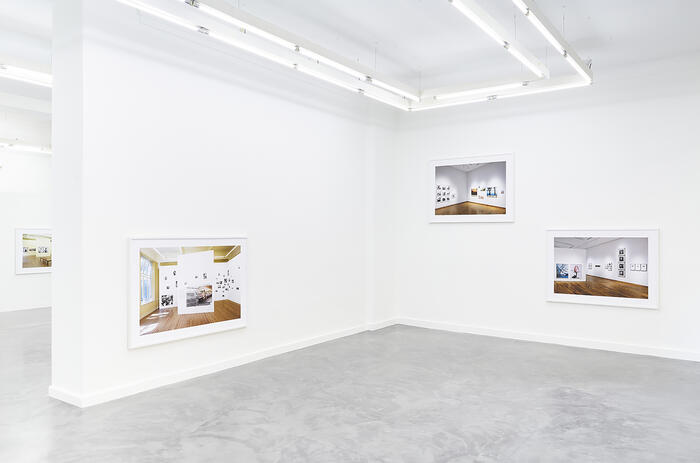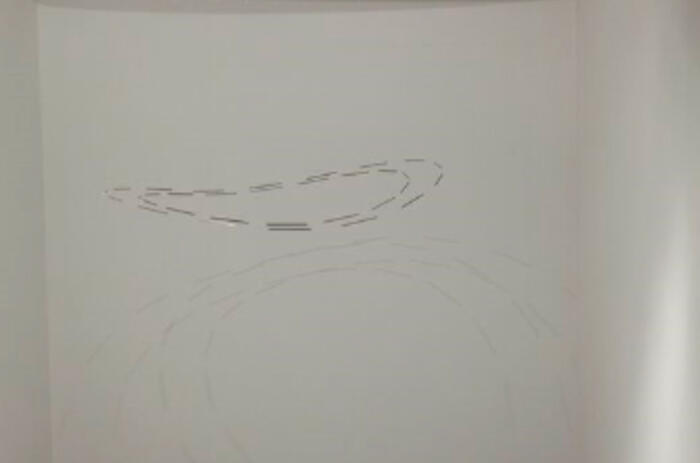Reviews

Alfredo Cortina: Photographer. Museo de Arte Contemporáneo del Zulia, Maracaibo
Cotina was not a professional photographer but through the lens of his camera he captured the loneliness, the fog and the beauty of the everyday in a way that had never been seen before.

Abstraction and Constructivism: Continuity and Breakdown of Latin-American Modernity. Durban Segnini, Miami
Durban Segnini Gallery celebrates its twenty۔third anniversary at the local level and forty۔five years of existence, with an alluring collective exhibition.

Eugenio Espinoza: Unruly Supports. PAMM, Miami
The exhibition underscores the work developed by the artist during the 1970s, when his proposal became an unequivocal turning۔point within the tradition of modern Venezuelan art.

Mateo Tannatt: Horse. Gallery Diet, Miami
There are no frontal or precise ideas in this show; what prevails at all times is a tangential, oblique discourse.

Yoan Capote: Collective Unconscious. Jack Shainman, New York
Yoan Capote’s exhibition inhabits binary spaces. Two galleries of work explore two seemingly contradictory themes: physical and mental suppression, and human resilience.

Lucía Pizzani: A Garden for Beatriz. Cecilia Brunson Projects
Lucía Pizzani’s exhibition at Cecilia Brunson Projectsfeatures a series of four works revolving around the relationship between nature, gender and materiality.

Amadeo Azar & Jorge Miño
Amadeo Azar’s (Argentina, 1972) watercolors and Jorge Miño’s (Argentina, 1973) digital photographs converge in the utilization of a geometric language in Los Restos del Triunfo, a show featured at Fundación Jorge F. Klemm

Eugenio Espinoza
Eugenio Espinoza: Unruly Supports (1970-1980) constitutes a rigorous exhibition that embarks the viewer on an exploration of Eugenio Espinoza’s (San Juan de los Morros, 1950) radical proposal. Curated by Jesús Fuenmayor, the exhibition is composed for more than fifty works that include paintings, photographs, sculptures, postcards and documentations of performances and interventions,

Yoan Capote
Yoan Capote’s Collective Unconscious inhabits binary spaces. Two galleries of work explore two seemingly contradictory themes—physical and mental suppression, and human resilience.

Matias Duville
An impressive topography of tamped down asphalt showing reliefs and planar areas extends throughout the main exhibition room of the Recoleta Cultural Center. Argentine artist Matías Duville’s (Buenos Aires, 1974) enigmatic and attractive installation lends its name to the exhibition: Arena Parking.

Adriana Lestido
The exhibition México, featuring works by the notable photographer Adriana Lestido (Argentina, 1955) at Rolf Art, displays two impressive and beautiful photographic essays, developed in Mexican territory in 2010. The interview México – which lends its title to the exhibition – is the product of an invitation from the Mexican photographer and curator Patricia Mendoza, to capture photographs of forest areas on the occasion of the International Year of Forests.

Lucía Pizzani
Beatrix Potter was an English scientist and illustrator who investigated the reproduction and taxonomy of fungi. In spite of her having developed important biological-reproductive theories, her scientific work could never be carried out professionally for reasons of gender.

Roberto Huarcaya
Since his emergence in the visual arts scene, the photographer Roberto Huarcaya (Lima, 1959) has distinguished himself by the ambition of his projects, in which photography has often been associated with other creative mediums in very solid combinations that have elicited intense responses from different audiences.

Expanding Time
The same day that I began writing this text, I saw on a video featured by an online Argentine newspaper, a TransAsia Airways plane cross a Taipei highway with a wing pointed towards the ground and another towards the sky, destroy the front of a taxi and crash on a river.

Joaquín Torres-García
As a celebration of its 25 years of existence, the Instituto Valenciano de Arte Moderno (IVAM) explores a part of the creation of Latin America through 127 works of its collection, under the special influence of Uruguayan artist Joaquín Torres-García.

Alejandro Kuropatwa
The images of Fuera de foco, works by Alejandro Kuropatwa (Buenos Aires, 1956-2003), presented at Vasari gallery, were shot and produced in New York, where the artist lived for around six years.

Allora & Calzadilla
“Talking to you makes me think that Man’s descent from the apes hasn’t even started yet.”

Carlos Cruz Diez
In 1980, the exhibition Didáctica y dialéctica del color, by master of color Carlos Cruz-Diez (Venezuela, 1923), was held at the Universidad Simón Bolívar (USB), Caracas.

Ricardo Rendón
At the core of Ricardo Rendón's artistic process is the notion that there are endless possibilities of creation starting from an already given set of elements.

Flavia Da Rin
Flavia Da Rin’s (Buenos Aires, 1978) alluring images usually distil fantasy, humor, and a dissimulated melancholy; they are structured around the artist’s appearance in constant and infinite transformation.

Statement: the State as a Masterpiece
In Statement, his second exhibition at Rolf Art, Francisco Medail explores the boundaries between artistic practice and curatorial practice while emphasizing the importance of the public sector in the context of contemporary art.

Elías Crespín
Hijo de matemáticos y nieto de artistas, Elías Crespín- Caracas, Venezuela, en 1965- asistió cotidianamente, desde que nació al fecundo diálogo entre la matemática y el arte.

Alex Flemming and his chaos
For some time, we had been hoping to see in Sao Paulo one of its great artists, who has been living in Berlin for over 20 years.

Daniel Otero Torres
At first glance, the pencil drawings by Daniel Otero Torres (Bogotá, 1985) elicit joy and fill the viewer with wonder.

Eugenio Zanetti
There was a time when the relatively small city of Córdoba was a great capital of American art and culture. The 1960s shook the planet, and in the central region of Argentina, this could be perceived in the streets.

Doris Salcedo
After being exhibited at the Calouste Gulbenkian Foundation (Portugal), the Museum of Modern Art in Malmö (Sweden), the National Museum of the 21st Century Arts - MAXXI (Italy), the Pinacoteca of the State of São Paulo (Brazil) and the University Museum of Contemporary Art of the National Autonomous University of Mexico UNAM (Mexico), a part of the installation Plegaria muda arrived at the Flora Foundation in Bogotá.

_The Silent Shout: Voices in Cuban Abstraction 1950-2013_
The Silent Shout… shows the continuity of abstraction in Cuba from the mid-twentieth century to the present, contributing to complete the map of that vast current that spanned the continent, including the Caribbean, ...

Adrián Villar Rojas
Adding color and moving away from monumental sculpture cast in unfired clay, Villar Rojas’ latest in-situ exhibition, Los Teatros de Saturno, at Kurimanzutto gallery does indeed represent a departure from his previous work, though brought to life with the central threads of his creative career, the ephemeral quest for life that often emerges from decay and his theatrical approach to artistic production, well intact.

Enrique Minjares
Enrique Minjares is angry and laughing. The 36-year-old artist draws a thin line between the two in his latest exhibition – derived largely out of faithful respect for formal artwork construction and an earnest sense of humor in what we all must now see as a casually cruel environment for art production in the Americas.

Emilio Pérez
Emilio Pérez’s third solo exhibition at Galerie Lelong, New York, includes recent paintings on wood panels, as well as a triptych executed during his residency at the Lux Art Institute in California in 2011, on view for the first time in the city.



